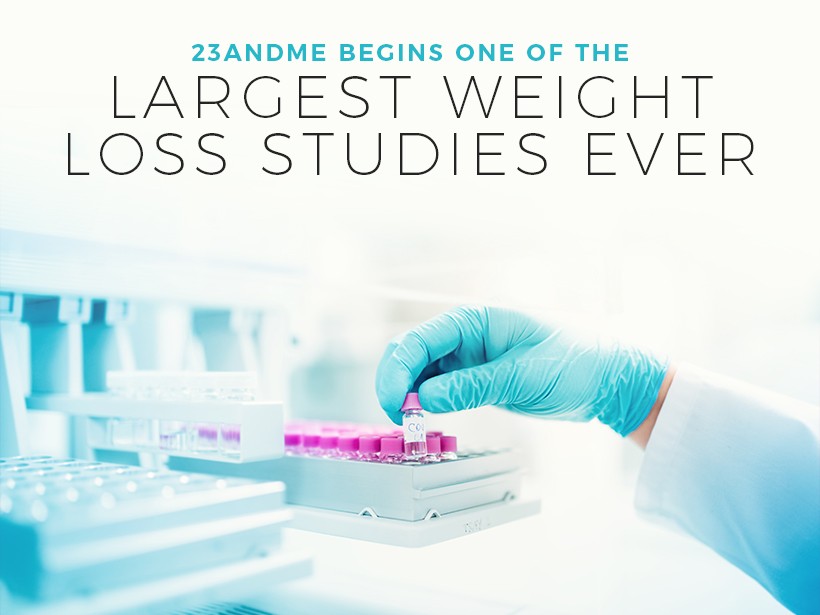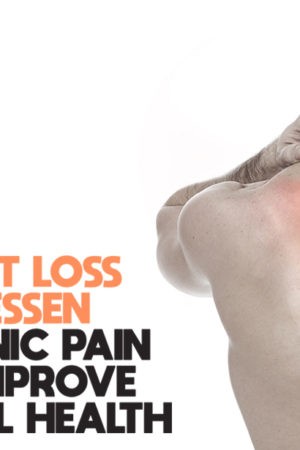23andMe, a company specializing in genetics and biotechnology, has helped countless people to determine their ancestry. Now, the company is trying out something a little different on a massive scale: weight-loss. 23andMe is currently planning one of the most ambitious weight-loss intervention studies ever undertaken by comparing the DNA and dieting success of 100,000 participants. This study is one of the largest ever undertaken, and researchers hope to discover how lifestyle, diet, and genetics interact with one another to form a holistic picture of health.
A massive undertaking
Those new to research may not realize how big the planned project that 23andMe is undertaking. The reason for including so many participants is to gain more accurate and comprehensive data that takes into account a wider pool of applicants and variety of lifestyles, races, and dietary needs. The goal of the study is to gain a better understanding of how genetics influence our weight, and also seeks to identify specific diets and lifestyle changes that can help customize weight-loss to DNA patterns.
“We suspect that there may be an underlying genetic architecture that may make it easier for some individuals to lose weight,” said Liana Del Gobbo, 23andMe’s lead scientist on the study.
Diets and DNA
To find a wide variety of DNA patterns and components, 23andMe called on their massive collection of DNA data to recruit participants. For three months, participants will be asked to follow one of three diets/lifestyles: a low-carb diet, a high-fiber diet, and an intensive exercise routine that prioritizes working out over a specific meal plan. Dieters will be given tips on how to manage their plans, including meal preparation tips and videos to help make the transition easier.
The massive size of the study does come with a few drawbacks. Some participants claim that they are not being given enough information on just how they should follow their new plan. For example, in a Reddit thread created for participants, many on the low-carb diet expressed their frustration at the lack of specific information they were given regarding side effects and just how many carbohydrates qualified as “low-carb.”1 Another trade-off for the massive size of the study is the potential for “cheating.” Because participants cannot be monitored as closely as a smaller group, there is less control over the specific lifestyles of individual participants. However, researchers at 23andMe remain optimistic, and hope that the current study paves the way for more information on the interaction of weight and genes.
Genetics: the future of research?
The current study is far from the first time that 23andMe used their massive pool of genetic data for the greater good. In 2016, the company crowdsourced 450,000 participants to study potential linkage between genetics and depression. The company also hopes to continue to support efforts researching the effects of genetics and Parkinson's Syndrome as well.
NUTRITIONAL DISCLAIMER
The content on this website should not be taken as medical advice and you should ALWAYS consult with your doctor before starting any diet or exercise program. We provide nutritional data for our recipes as a courtesy to our readers. We use Total Keto Diet app software to calculate the nutrition and we remove fiber and sugar alcohols, like erythritol, from the total carbohydrate count to get to the net carb count, as they do not affect your blood glucose levels. You should independently calculate nutritional information on your own and not rely on our data. The website or content herein is not intended to cure, prevent, diagnose or treat any disease. This website shall not be liable for adverse reactions or any other outcome resulting from the use of recipes or recommendations on the Website or actions you take as a result. Any action you take is strictly at your own risk.
- Keto Drives Increased Calorie Burn - July 11, 2019
- New High-Protein, Low-Sugar Greek Yogurt Hits Market - April 1, 2019
- Can Going Low-Carb Fight Back Fat? - December 4, 2018































